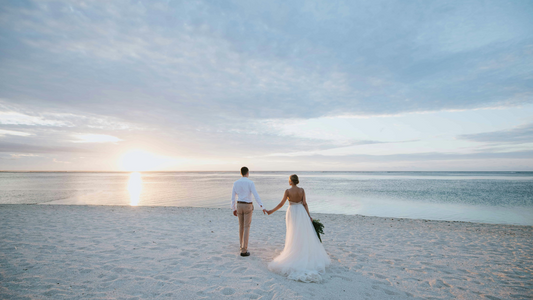Deciding to elope can be incredibly romantic and personal, but it also involves certain legalities that can't be overlooked—one of which is whether you need witnesses present to legally validate your marriage. This blog explores the requirements for witnesses during an elopement and offers practical advice for incorporating them into your special day, should they be necessary.
Understanding the Legal Necessity of Witnesses
When you choose to elope, the legal requirements can vary significantly depending on the location where the marriage is performed. Most states and countries have specific laws regarding the presence of witnesses during the marriage ceremony.
Witness Requirements in the United States: In the U.S., the need for witnesses varies by state. Some states require one or two witnesses present during the ceremony, while others do not require any witnesses at all. For instance, states like Colorado and Pennsylvania allow self-solemnization, meaning no witnesses are required. In contrast, states like Washington and New York require two witnesses.
International Witness Requirements: If you're planning to elope abroad, the requirements can be more complex. Many countries require witnesses as part of the marriage process, and some might even require that the witnesses be residents of the country. It’s crucial to research the specific legal requirements of the country where you plan to marry.
Choosing Your Witnesses
If witnesses are required, choosing who will fulfill this role is a significant consideration. Witnesses are typically over the age of 18 and must be mentally capable of understanding the event they are witnessing. Here are a few ideas on how to choose and incorporate witnesses into your elopement:
Ask Close Friends or Family: If you're inviting a few close friends or family members to your elopement, asking them to be your witnesses can add a meaningful layer to their involvement in your day.
Use Your Vendors: In more intimate elopements, where it’s just the couple and perhaps a photographer, couples often ask their photographer or officiant to be a witness. This is quite common and most elopement photographers are accustomed to serving dual roles.
Find a Local Volunteer: If you’re eloping in a remote location or a different country, you might consider asking someone local to act as your witness. This could be someone you meet during your travels or even a staff member at your accommodation.
Incorporating Witnesses into Your Ceremony
Having witnesses at your elopement does not mean sacrificing the intimacy of your ceremony. Here are a few ways to make your witnesses feel integrated into the event:
Personalize Your Request: When you ask someone to be your witness, do so in a way that makes them feel special. Consider writing a personal note or giving them a small gift as a token of appreciation.
Involve Them in the Ceremony: Beyond just signing the marriage license, you can involve your witnesses in the ceremony itself. They could read a passage, share a few words, or help with a ritual like a sand ceremony or tying a handfasting cord.
Celebrate Together: After the ceremony, celebrate your newlywed status with your witnesses by sharing a meal or a toast. This can be a lovely way to thank them for their role in your day and make them feel appreciated.
Conclusion
While not all elopements require witnesses, understanding and adhering to the legal requirements of your chosen location is crucial. If witnesses are necessary, there are many creative and meaningful ways to incorporate them into your ceremony. Remember, the key is to maintain the intimacy and personal significance of your elopement, even while fulfilling legal obligations.




